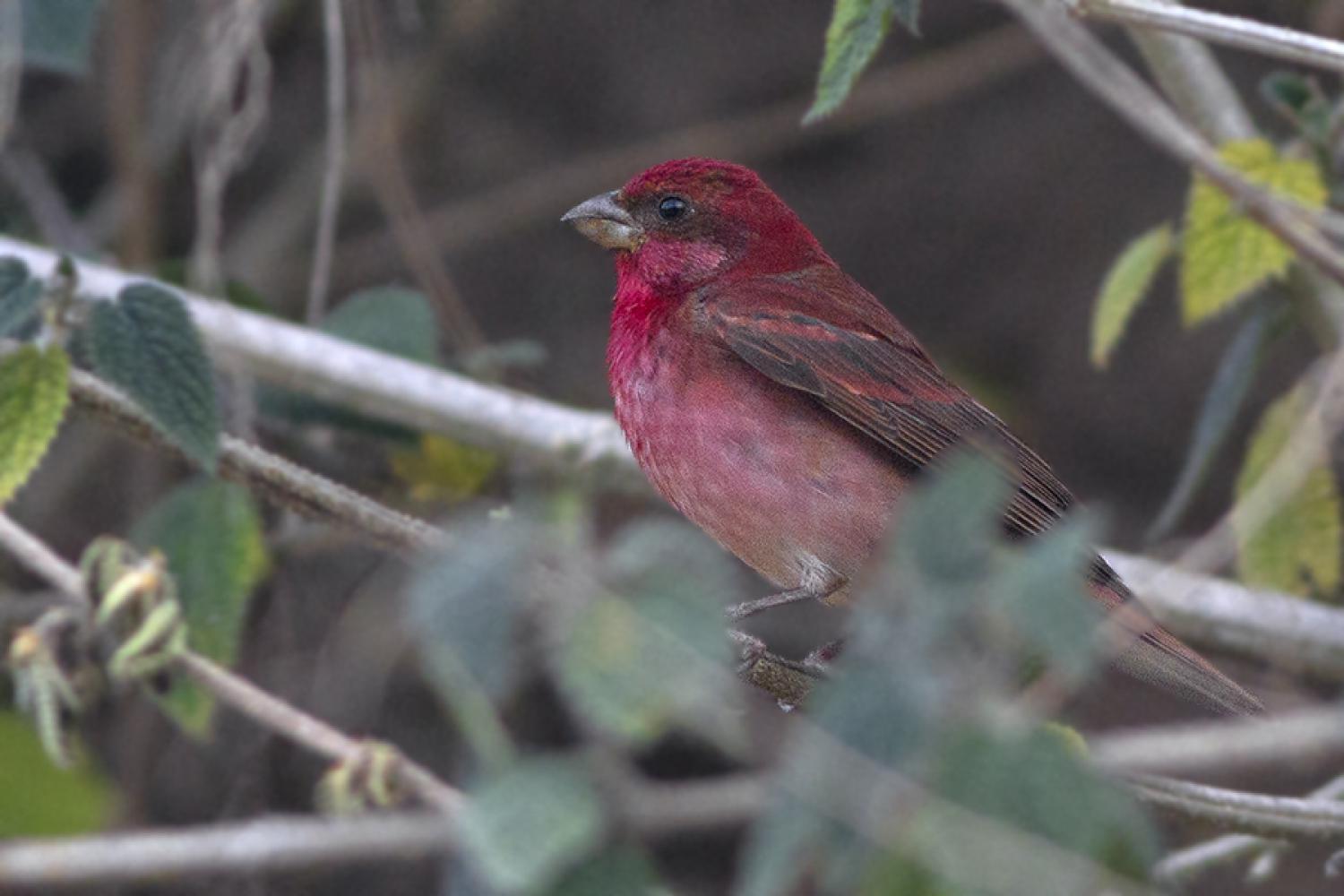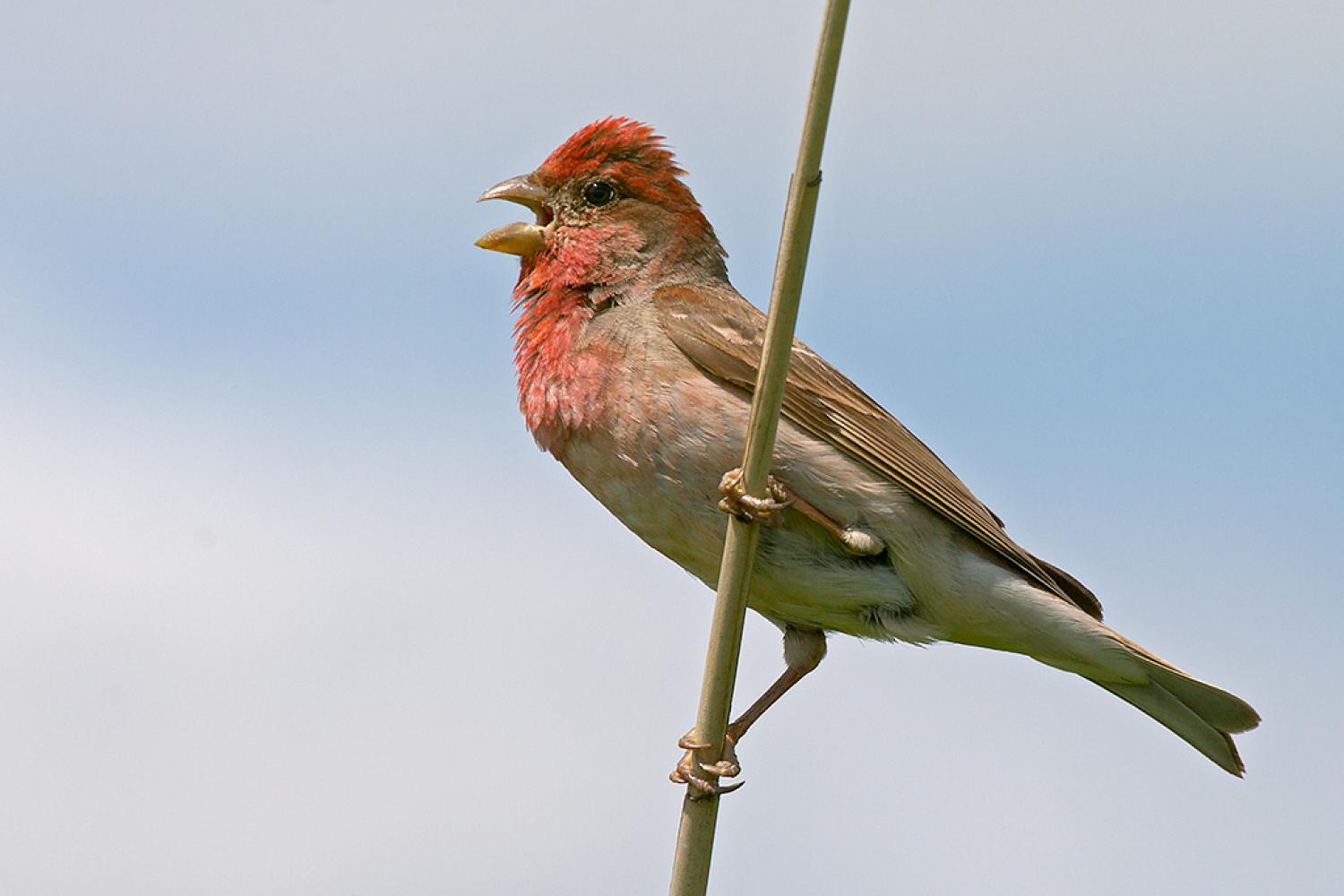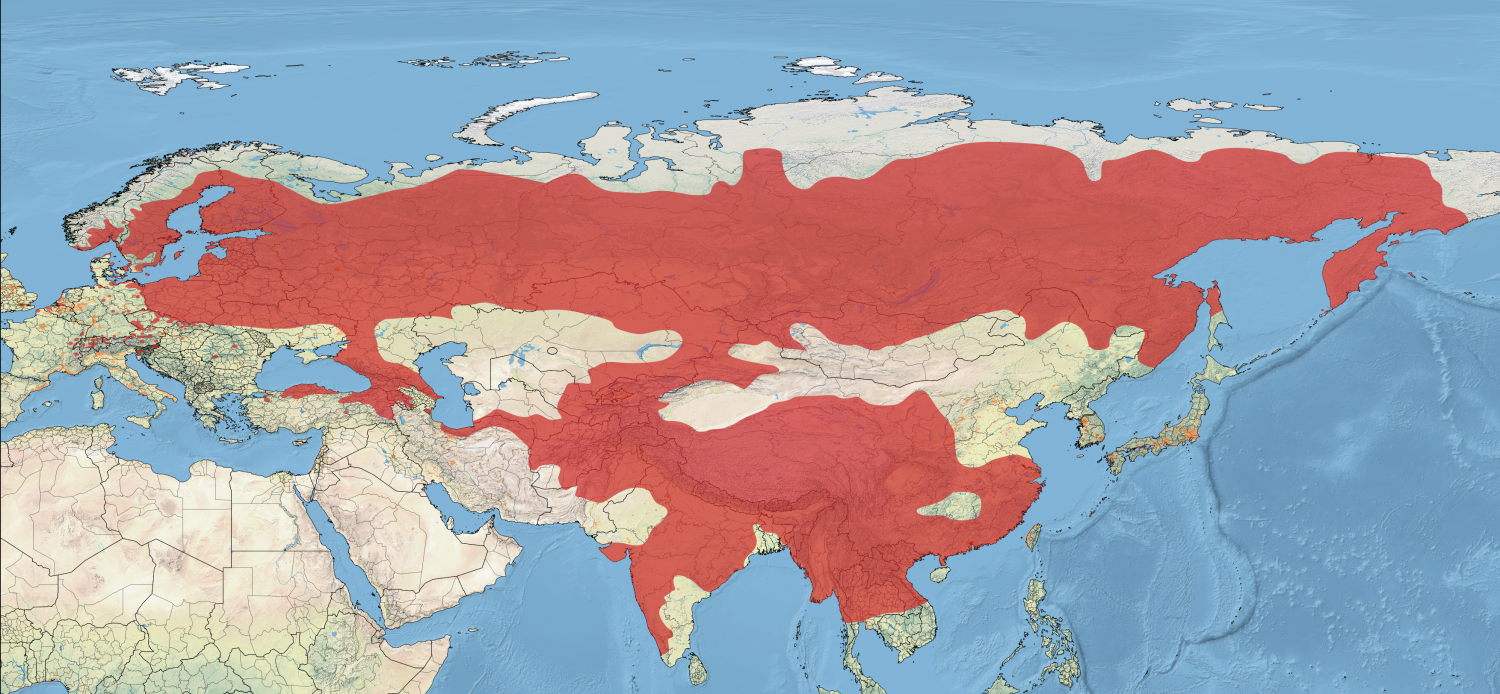Species of Thailand
Common rosefinch
Erythrina erythrina
Peter Simon Pallas, 1770
In Thai: นกจาบปีกอ่อนสีกุหลาบ
The common rosefinch (Carpodacus erythrinus) or scarlet rosefinch is the most widespread and common rosefinch of Asia and Europe.
Taxonomy
In a molecular phylogenetic study of the finch family published in 2012, Zuccon and colleagues found that the common rosefinch fell outside the core Carpodacus rosefinch clade and was a sister to the scarlet finch (at the time Haematospiza sipahi). They recommended that the common rosefinch should be moved to a new monotypic genus with the resurrected name of Erythrina. The British Ornithologists' Union accepted this proposal, but the International Ornithological Union chose instead to adopt a more inclusive Carpodacus that retained the common rosefinch in the rosefinch genus.
The genus name is from Ancient Greek karpos, "fruit" and dakno, "to bite", and the specific erythrinus is from Latin erythros, "red".
Description
The common rosefinch is 13 - 15 cm in length. It has a stout and conical bill. The mature male has brilliant rosy-carmine head, breast and rump; heavy bill; dark brown wings with two indistinct bars, and a white belly. Females and young males are dull-colored with yellowish-brown above, brighter on the rump and greyer on head; buff below.
Adults moult in their winter quarters, between September and November. After moulting the red of male is subdued, and becomes brighter during the winter due to wear of the feathers.
Distribution and habitat
It has spread westward through Europe in recent decades, even breeding in England once. Common rosefinches breed from the Danube valley, Sweden, and Siberia to the Bering Sea; the Caucasus, northern Iran and Afghanistan, the western Himalayas, Tibet and China; to Japan between latitudes 25° and 68°. In winter they are found from southern Iran to south-east China India, Burma, and Indochina.
They are found in summer in thickets, woodland and forest edges near rivers and in winter in gardens and orchards, wetlands and locally in dry oak woods.
Behaviour
The nest is placed low in a bush. The eggs are dark blue with coarse dark brown spots, and a typical clutch contains five eggs.
This article uses material from Wikipedia released under the Creative Commons Attribution-Share-Alike Licence 3.0. Eventual photos shown in this page may or may not be from Wikipedia, please see the license details for photos in photo by-lines.
Category / Seasonal Status
Wiki listed status (concerning Thai population): Winter visitor
BCST Category: Recorded in an apparently wild state within the last 50 years
BCST Seasonal status: Non-breeding visitor
Scientific classification
- Kingdom
- Animalia
- Phylum
- Chordata
- Class
- Aves
- Order
- Passeriformes
- Family
- Fringillidae
- Genus
- Erythrina
- Species
- Erythrina erythrina
Common names
- Thai: นกจาบปีกอ่อนสีกุหลาบ
Synonyms
- Erythrina erythrina
Conservation status

Least Concern (IUCN3.1)
Photos
Please help us review the bird photos if wrong ones are used. We can be reached via our contact us page.
Range Map

- Chiang Dao Wildlife Sanctuary
- Chiang Saen District, Chiang Rai
- Doi Inthanon National Park
- Doi Lang
- Doi Pha Hom Pok National Park
- Doi Phu Kha National Park
- Doi Suthep - Pui National Park
- Kaeng Krachan National Park
- Mae Ai District, Chiang Mai
- Mae Fa Luang District, Chiang Rai
- Mae Rim District, Chiang Mai
- Mae Taeng District, Chiang Mai
- Mae Wong National Park
- Mueang Chiang Mai District, Chiang Mai
- Mueang Khon Kaen District, Khon Kaen
- Pa Sang District, Lamphun
- Pha Daeng National Park
- Phu Chi Fa Forest Park
- Phu Hin Rong Kla National Park
- Tham Sakoen National Park
- Thung Yai Naresuan Wildlife Sanctuary



